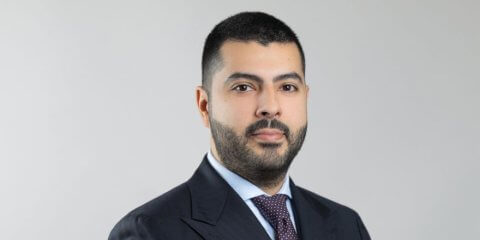
Bahrain has taken a landmark step in shaping the future of digital finance with the launch of the GCC’s first comprehensive Stablecoin Issuance and Offering (SIO) framework. Supervised by the Central Bank of Bahrain, the new regulation delivers legal clarity, robust licensing requirements, and internationally aligned standards drawn from MiCA, FATF, FSB, and NIST.
Designed to strike a careful balance between innovation and investor protection, the framework includes strict reserve backing, redemption guarantees, independent audits, and advanced cybersecurity protocols—while also giving fintechs the flexibility to innovate through supervised yield models, multiple fiat options, and access to the regulatory sandbox.
Tariq Mattar, Director, Business Development, Bahrain Fintech Bay and Co-Chair of the Bahrain Chapter of the MENA Fintech Association, spoke to Sandhya D’Mello, Technology Editor, CPI Media Group, about how, by aligning with global regulatory benchmarks, Bahrain is enhancing cross-border interoperability, paving the way for faster, safer GCC-wide payments and digital trade. Combined with its supportive ecosystem—powered by local talent, government-backed funding, and the collaborative #TeamBahrain approach—the Kingdom is positioning itself as a launchpad for startups in digital assets, tokenisation, and Web3 technologies. Bahrain FinTech Bay remains central to this vision, serving as the ecosystem builder driving adoption, education, and high-impact innovation in the Kingdom’s evolving financial landscape.
Interview Excerpts:
Bahrain recently introduced the region’s first comprehensive Stablecoin Issuance and Offering (SIO) framework. Could you share how this positions Bahrain uniquely within the global fintech landscape?
As the first country in the GCC to launch a dedicated, centralised regulatory framework for stablecoins, supervised directly by our regulator, the Central Bank of Bahrain (CBB). This national-level framework provides legal clarity and a defined licensing regime for issuers, custodians, wallet providers, and payment facilitators. By doing so, the nation is solidifying its position as a launchpad for the future of digital finance. The SIO framework positions the Kingdom as the regional first mover with a stablecoin-specific regulatory module. It also positions the country as a globally aligned hub that incorporates best-practice standards from MiCA (EU), FATF, FSB, and NIST, and a jurisdiction with clear legal certainty and investor safeguards through mandatory licensing, prudential capital requirements, and redemption guarantees. This also reinforces our reputation as a forward-thinking financial centre that embraces innovation while maintaining strong oversight.
Balancing innovation with investor protection is critical in digital finance. How does the new regulatory framework ensure that innovation thrives without compromising investor trust and safety?
The SIO regulatory framework is one of the most comprehensive frameworks in the region, with clear legal classifications for different types of stablecoins (e.g., fiat-backed, crypto-collateralised, and algorithmic). It embeds investor safeguards at its core while enabling innovation through flexibility and regulatory support. Designed around ten regulatory pillars, the framework safeguards investor trust without stifling innovation. The key safeguards include full 1:1 reserve backing to ensure stability, permanent redemption rights at par value, monthly independent audits for transparency, NIST-based cybersecurity standards to protect users, and strict AML/CFT compliance in line with FATF, including transaction monitoring and suspicious activity.
The framework also supports innovation by allowing multiple fiat currencies, yield models under supervision, and access to the CBB’s regulatory sandbox, thus creating a safe, structured environment for testing new ideas.
Given that Bahrain’s new regulation aligns with global standards like FSB, FATF, MiCA,and NIST, how will this impact cross-border transactions and interoperability within the GCC region?
By aligning with these regulatory benchmarks, Bahrain is not only strengthening its framework but also positioning itself as a credible and interoperable player in the international financial ecosystem. The FSB’s reserve and redemption requirements, embedded in Bahrain’s framework, make Bahraini-issued stablecoins more secure and reliable for cross-border use. FATF-aligned AML/CFT measures reduce compliance risks in remittances and ensure compatibility with established global payment networks. In parallel, the MiCA-inspired licensing, reserve management, and disclosure requirements create a unified language that allows GCC-based fintechs and EU firms to transact seamlessly. NIST-driven cybersecurity standards further enhance trust and resilience for cross-border settlements. So altogether, this alignment creates an environment where Bahraini stablecoins can facilitate GCC-wide interoperability, supporting faster, safer cross-border payments, remittances, and digital trade settlements.
What specific opportunities does Bahrain’s progressive stance on stablecoins and digital assets create for fintech startups looking to scale in the region?
We are at a stage where we are currently exploring exciting, innovative use cases across the digital asset space in the Kingdom of Bahrain. The kingdom offers an ideal environment for fintech growth, combining robust, forward-looking regulation with exceptional local talent, supportive funding through our Labour Fund Tamkeen, and a unified #TeamBahrain approach. This makes the kingdom the ideal environment for innovation, where ideas can be developed or scaled from Bahrain to the rest of the world. A key enabler in this process is the regulatory sandbox where startups can test solutions under the Central Bank of Bahrain’s oversight. Startups can build and expand their products in areas such as cross-border payments, tokenised assets, e-commerce micropayments, and Sharia-compliant digital finance. The ability to issue stablecoins in BHD or USD is another significant competitive advantage in the region. With all of these advancements in place, Bahrain strengthens its position as a strong hub where companies can scale their innovations and expand from the Kingdom to global markets.
Looking ahead, how do you see the regulatory landscape in Bahrain evolving, particularly in areas like Web3 and crypto-assets, and what role will Bahrain FinTech Bay play in this journey?
With the CBB’s clear direction and progressive stance, Bahrain is well-positioned to lead in emerging areas such as Web3, digital assets, and tokenisation. At Bahrain FinTech Bay, we are committed to playing a key role in shaping the future of digital finance, driving adoption, increasing knowledge and awareness across key topics such as stablecoins, tokenisation, digital assets, and AI, and facilitating high-impact innovative use cases. It all ties back to our role and mission as an ecosystem builder, ensuring that we bring together the full spectrum of market participants. This enables Bahrain to remain a strong, well-regulated hub for digital finance, where innovation and investor protection go hand in hand.





